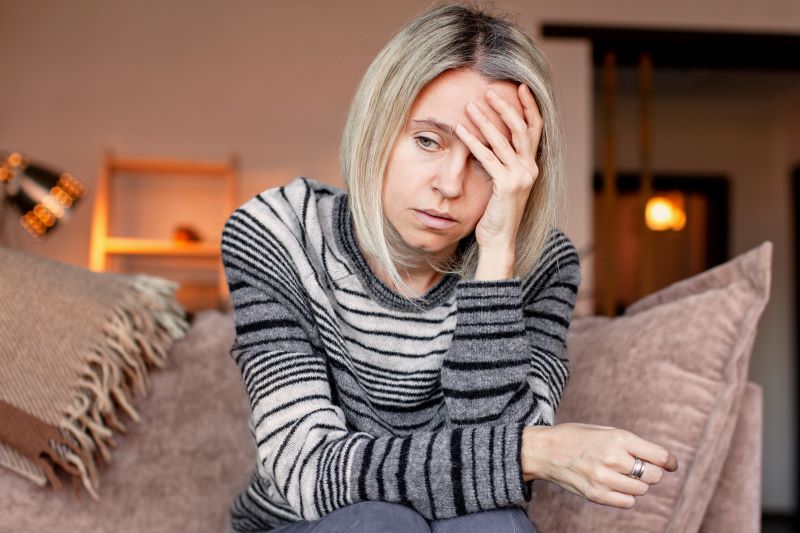
The Link Between Mental Health and Vulvodynia

Vulvodynia is a chronic pain condition that affects the vulva, making everyday activities like sitting, putting in a tampon, or having sexual intercourse painful, and it impacts up to 8% of women by age 40. Women with this condition may have a weaker immune system compared to those without vulvar pain. Additionally, mental health issues like anxiety and depression are often linked to vulvodynia. Since mental health problems can trigger inflammation in the body, a recent study aimed to see if the connection between mental health and vulvodynia is influenced by other immune-related conditions.
The researchers used Swedish data from 1973 to 2018, focusing on women with vulvodynia and vaginismus, (i.e., painful muscle contractions preventing vaginal penetration), to explore the links between these conditions and psychiatric issues, while considering immune health factors. The authors of the study obtained approval from the Swedish Ethical Review Authority to access various national registers that track medical conditions and treatments.
They included all women born in Sweden during this time, except those who emigrated, ultimately analyzing data from over 745,000 women. Cases of vulvodynia (4,787 women), vaginismus (2,063), or both (867) were identified using specific medical codes, and each case was matched with two controls without these conditions.
To investigate the participants’ psychiatric health, the team used medical codes for various mental health issues, including depression and anxiety, along with data on prescriptions for antidepressants and anxiolytics, which are drugs used to treat anxiety. They also looked at factors related to how the women were born, such as their delivery method and birth weight, as these factors might affect their immune function later in life.
Statistical methods were used to analyze the relationship between psychiatric health and vulvar pain, taking into account factors like birth year, education, and region. The researchers wanted to see if immune-related conditions affected these connections, and if any complications during pregnancy or childbirth played a role.
After analyzing the data, the researchers found that women with vulvar pain tended to be less likely to have given birth multiple times and tended to have more education compared to those without pain. The findings also showed that women with psychiatric issues were more likely to experience vulvar pain, regardless of immune-related conditions. Specifically, mood and anxiety disorders were significantly associated with vulvodynia and vaginismus. As such, psychiatric health appeared to play a critical role in the experience of these vulvar pain disorders among women.
While past research has suggested that vulvodynia can lead to psychiatric issues, this study indicates that depression and anxiety may also contribute to developing these vulvar pain conditions. According to the authors of the study, stress-related inflammation could play a significant role in this relationship.
Ultimately, the study highlights the importance of recognizing and treating psychiatric issues in women with vulvar pain, as these conditions may affect treatment outcomes. It also underscores the need for collaboration between medical professionals to ensure comprehensive care for women experiencing these challenges.
References:
- Harlow, B. L., Mühlrad, H., Yan, J., Linnros, E., Lu, D., Fox, M. P., & Bohm-Starke, N. (2024). Psychiatric morbidity across the life course and provoked vulvodynia: Is it dependent upon the presence of non–stress-related immune dysfunction? The Journal of Sexual Medicine, 21(9), 800–806. https://doi.org/10.1093/jsxmed/qdae082




